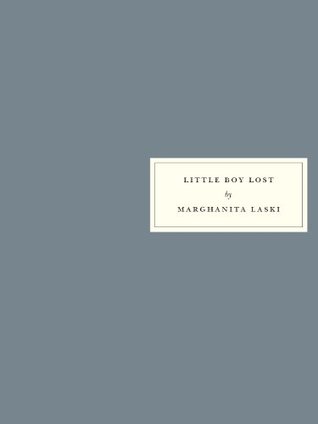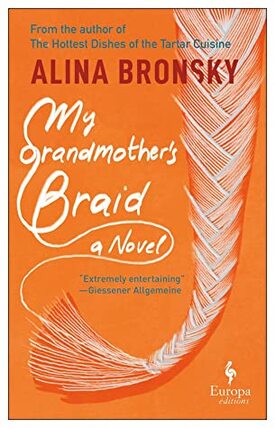Little Boy Lost by Marghanita Laski
Still grieving his wife and his own loveless childhood, Hilary is unsure whether he even wants the boy to be his. He goes there out of duty in the hope that when he meets the child he’ll know.
Yet it isn’t like that. But although his paternity’s unclear, the child’s desperate condition is striking. Not because the nuns who run the orphanage aren’t kindly, but because food is scarce and, across Europe, Jean is far from the only child without parents. Plus, thanks to the British, the whole of northern France is a bomb site.
The nuns suggest he spend time with the boy after lessons, without hinting he might take him home. Jean’s deprivation makes connection easy. All Hilary need do is give him simple things he’s never had before: a pair of gloves, a drink in a cafe, an adult to take him to watch the trains.
But it’s not so straightforward. Both man and boy are damaged and, when things get difficult, something cracks. Can they heal each other or are they beyond repair?
First published in 1949, and reissued in 2001 by Persephone Books, I read this for my book group, and found it fresh and relevant to today. Our orphaned children aren’t in Europe, unless they arrive as refugees. Will we rescue only those who look like us? Hilary’s rationalisation of his selfishness as he takes advantage of the black market echoes contemporary questions of morality about the gulf of opportunity between rich and poor. Plus, how many prospective parents – natural and adoptive alike – gloss over the challenges, as Hilary does, unaware the other side of love is hate?
This novel mines the psychological and moral issues with great sensitivity, while being an otherwise easy read. My only reservation was in the final paragraph, where I felt the author might have lost her nerve. If you read it, let me know if you agree.
My Grandmother’s Braid by Alina Bronsky
translated by Tim Mohr
Max narrates this family story with wry humour across a decade of his childhood, as he gradually develops a mind of his own. The author cleverly depicts the young boy’s initial acceptance of Grandmother’s version of events, while showing the reader how distorted her perspective is. I did wonder at his self-assurance despite having been raised by a woman who hears voices and co-opts everyone into her OCD rituals. But this isn’t a novel to take too literally, but go with the flow and enjoy the ride.
Along the way, Max learns about his parentage, Grandmother deploys her skills as a dancer and Grandfather forges a surprising link between his family and Nina’s. Overall, it’s a humorous coming-of-age story about family secrets, deluded matriarchs and refugees. Thanks to publishers Europa editions for my review copy.
My second novel, Underneath, is also a boy without a father, who becomes as dangerously vulnerable as Hilary as a man. Click on the image to learn more.
One was easy: Please water! Please food! It slumbered in his larynx, ready to erupt on reaching dry land. He’d crushed the second in his chest when he learned the consequences of questioning the crew. Desire for coat or canopy to combat gale and hail migrated from his stomach to his bowels. His dreams of home, school, a football pitch dropped deeper with every battering of the boat until they reached his toes. But he’d abandoned hope of seeing his father again so long ago, he’d almost forgotten. That wish, like a surplus body, sinking to the ocean floor.

























 RSS Feed
RSS Feed





















